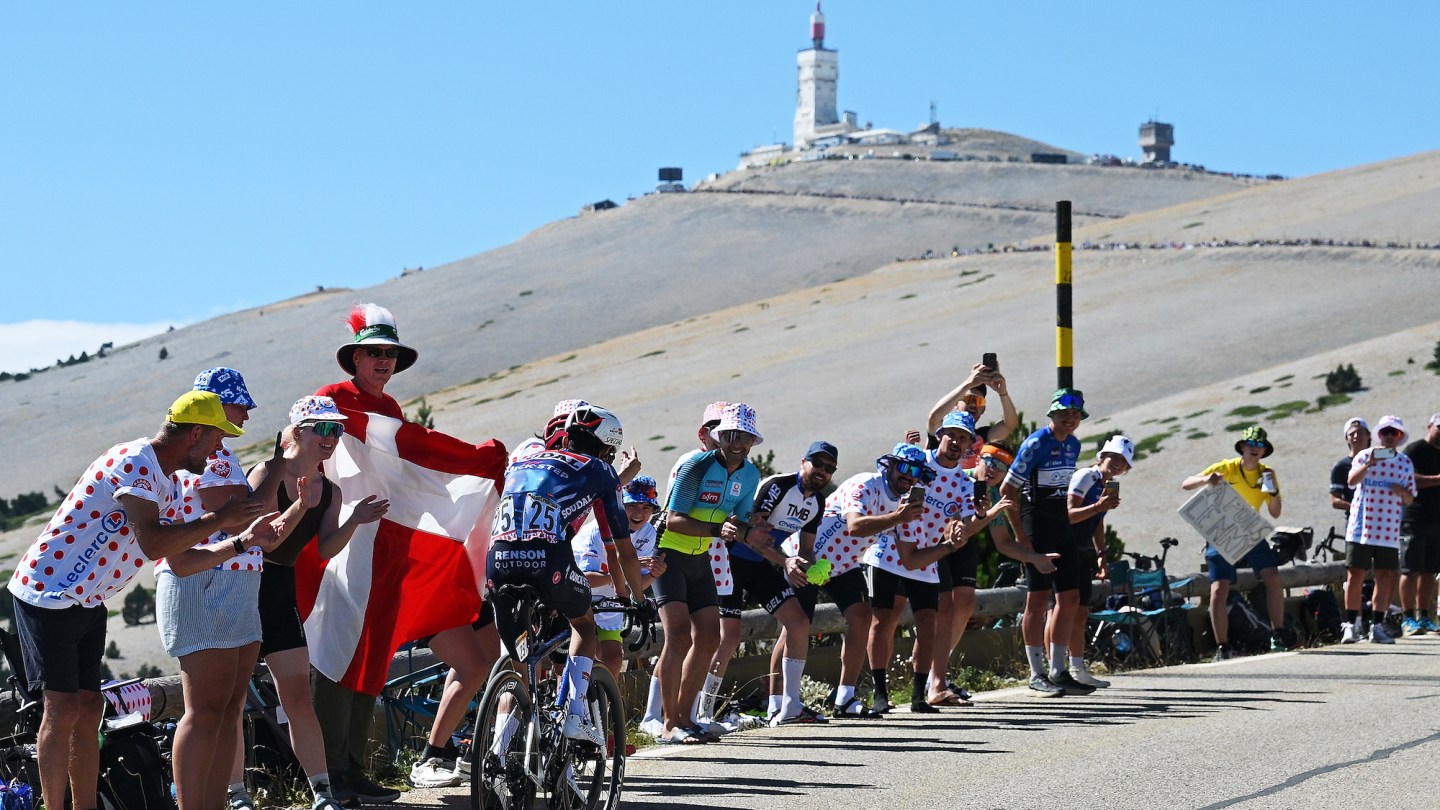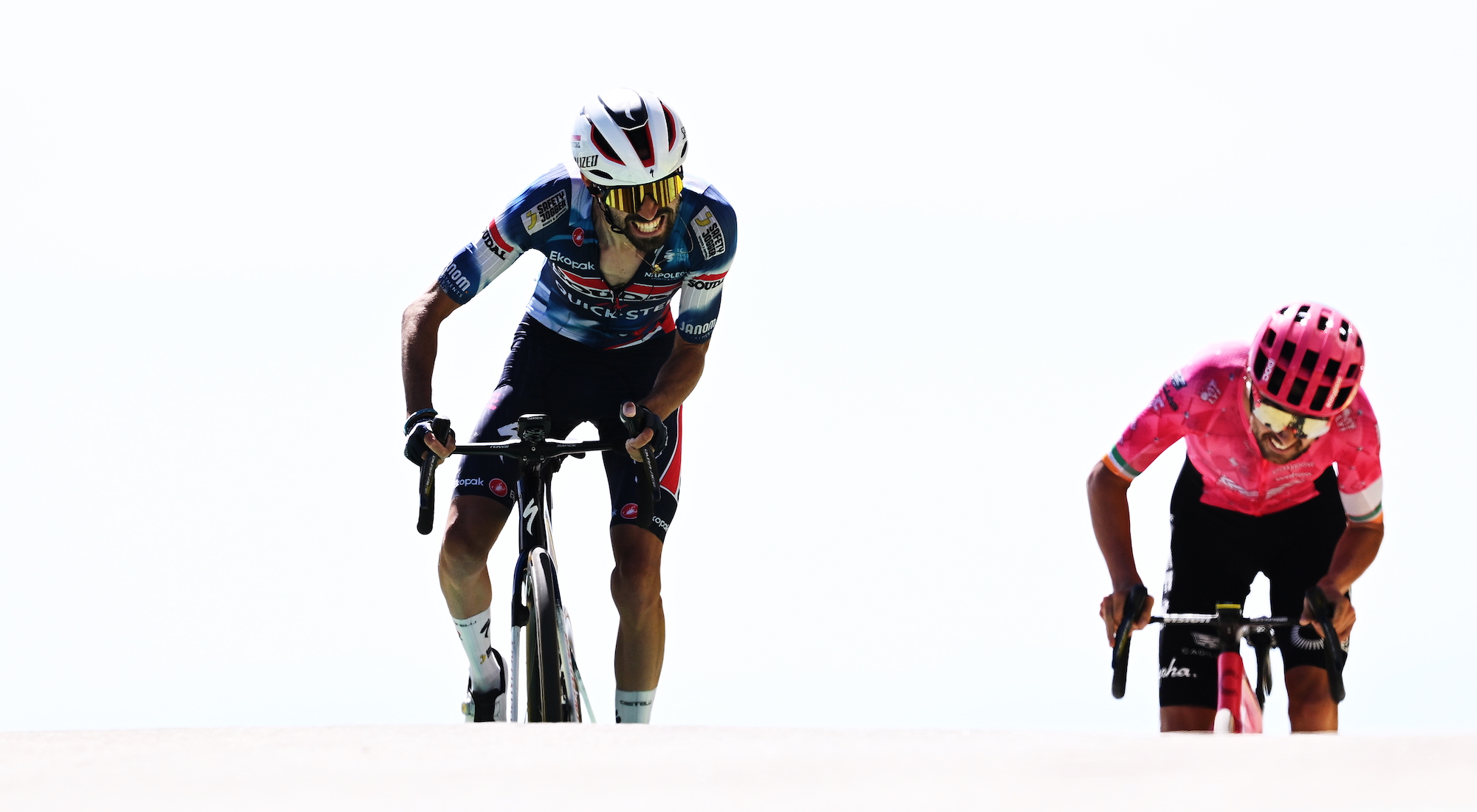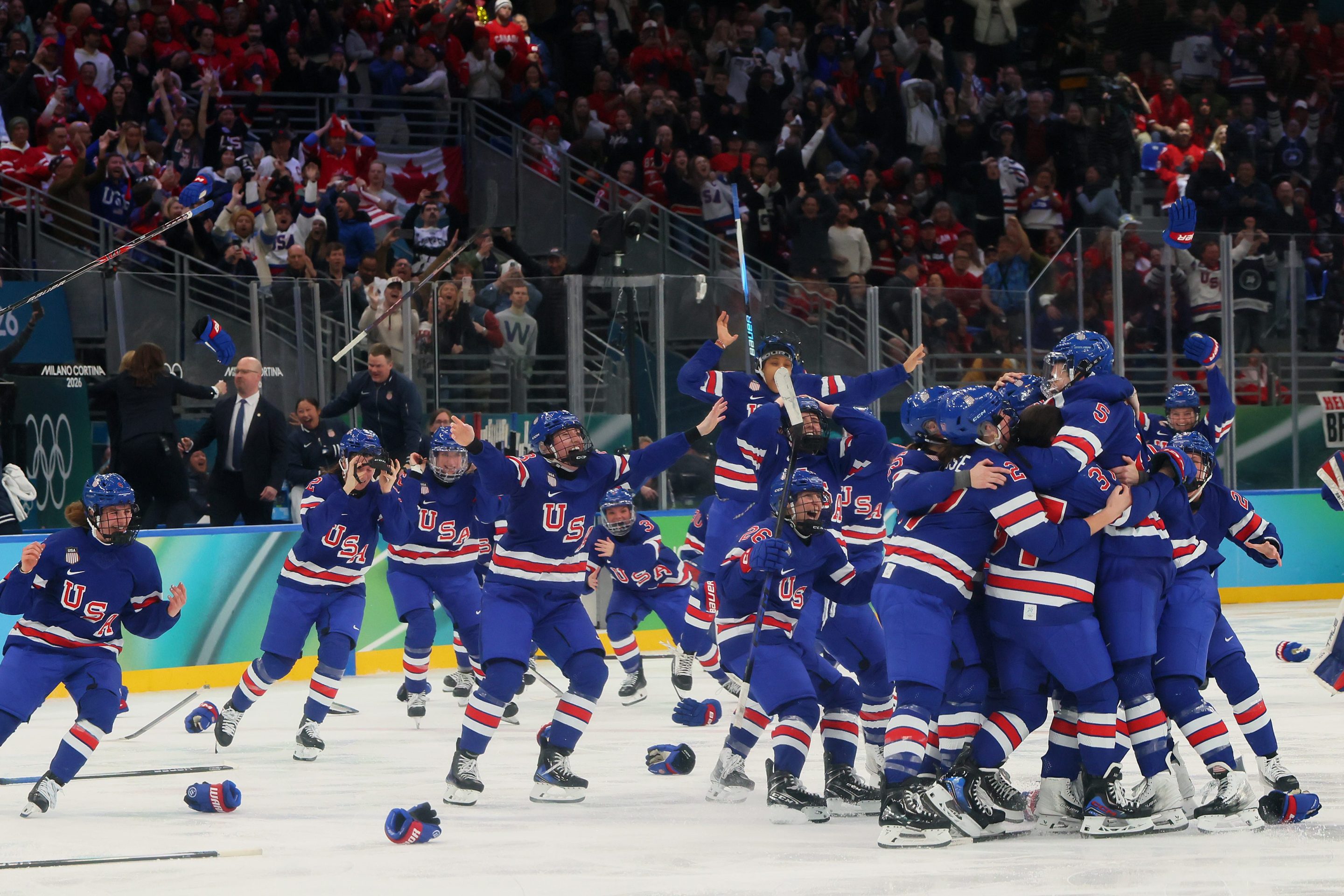MONT VENTOUX, France — "I had goosebumps in the moment, it was so incredible," Soudal-QuickStep team photographer Wout Beel said on the morning of Stage 17. "I am getting goosebumps again just talking about it, look!" he said, showing me his arm. It's true, he was. One day earlier, one of his team's riders had won the stage—but not just any rider, and not just any stage. Finally, the French had gotten on the board.
With each dominant Tadej Pogacar win and each successive anonymous performances from the hometown teams, you could feel the anxiety building. Heading into a punishing third week of the Tour, a French rider had not won a stage at the 2025 Tour de France. Marc Madiot's considerable eyebrows scrunched together with extra verve, the man who dresses as a king in the fan zone looked slightly less vainglorious, and the French press seemed somehow even more dour with each passing day. The French have only failed to win a stage three times, and a fruitless Tour on the 40th anniversary of the last time a French rider won the yellow jersey would have prompted a fresh round of French hysterics. That gnawing anxiety is partially what made Julian Alaphilippe's premature celebration so painful, and partially what made Valentin Paret-Peintre's victory on Mont Ventoux one stage later so cathartic.
Staving off further embarrassment for French cycling is significant, and winning on Mont Ventoux is as good as it gets. Ventoux is unlike any other mountain in the Tour de France. "The Giant of Provence" is only part of the Alps in the nominal sense, as it stands totally alone, rising up out of the gently lavendered slopes of the Rhône Valley and towering over the region. From its summit you can see more than 100 kilometers in every direction, from the true Alps to the north to the foothills of the Cévennes in the west. On a clear day, you can see Marseille. It's an impossible, perfect object up which to race bikes, and being up at the summit to witness it made me understand why people get so romantic about this sport. Of course a French rider had to win here.
One distinguishing characteristic of Ventoux, after its individualism, is its lunar baldness. Locals have denuded the mountain of its trees for nearly a millennium in order to build ships down in Toulon, and all that remains is a windswept scree field of head-sized limestone cobbles. We watched the last 1.5 kilometers from a perch above a steep debris field, which was protected in theory from foot traffic by a volunteer for the Office de Tourisme Intercommunal Ventoux-Provence. They were armed with a megaphone that amplified and scrambled the speaker's voice in equal measure, transmitting to the errant cobble-walker less a clear warning than as a garbled communique that something was amiss. When the volunteer was too far away, fans booed. This is a mountain worth taking seriously.
From up there, we could see down the sweep of the mountain and count the breakaway survivors grimly chugging up the last bit of the climb. Paret-Peintre had brave Ben Healy, Santiago Buitrago, and Enric Mas for company, though he and Healy spent the last few kilometers attacking each other. I watched the bit before they rounded the corner into full view on a TV outside the Dutch NOS broadcasting van—a production assistant was smoking a cigarette inside of the van; the Dutch!—and with every Paret-Peintre attack, the crowd surged. How could you cheer against the French on a day like this? When the group reached the top, sans Mas, they faced a ferocious headwind that all but ensured a sprint, in the loosest sense of the word, and they slowed enough for Paret-Peintre's teammate Ilan Van Wilder to get to the front and put in a serious dig.

He had to, because you could see Pogacar and Jonas Vingegaard dueling down below. The striking thing about being high up enough to see that much of the road is that you can gauge speeds. And the two rivals were flying, gobbling up the gap to the front quartet without necessarily trying to. Healy and his breakmates were straining against the pedals, fighting their bodies, gravity, and the mountain, while Pogacar and Vingegaard were merely fighting each other. The cleanness with which Pogacar pedals his bike is almost unnerving, and he didn't even get out of the saddle or appear to breath through his mouth until he attacked Vingegaard at the very end. After the finish, I saw Pogacar ride straight to see Urška Žigart, pro rider and his fiancée, for a casual chat; he seemed like he'd just finished warming up, not smashing the Ventoux record.
And yet Paret-Peintre's group stayed away, and he won the sprint against Healy. Minutes after the win, I saw QuickStep sports director Davide Bramati drive down, wiping tears out of his eyes and saying, in the hoarsest French imaginable, that he'd fully lost his voice from screaming so much. I caught up with him the next morning and confirmed that, yes, his vocal cords were still shredded. Both regional papers, Vaucluse Matin and La Provence, went with the same headline: "Géant!" Giant!
The Tour de France will always be a moving postcard for France, one intended to show the world the country's unique charms and varied natural beauty. There is a certain amount of artifice to this performance, leaning on the romantic image of France as a pastoral, idyllic country whose sweeping fields of lavender and sunflowers are matched for beauty only by its ancient churches and narrow cobbled streets. But also, France does have that stuff, and highlighting it in the race is coherent with cycling's reverence for and active relationship with its history. The riders who climbed Mont Ventoux yesterday summited the same roads that Raymond Poulidor and Eddy Merckx won on, the same agonizing climb where Tom Simpson died. Romantic nostalgia is more than called for; it's an essential component of the sport.
And elite French winners are only accessible through nostalgia, because the French have not won one of their own Tours in 40 years. In those four long decades, riders from Ireland, Luxembourg, and Australia have won, but not a hometown rider. Entire generations have come and gone without getting very close. Romain Bardet and Thomas Voeckler walk around the paddock and are treated like heroes for fighting hard and suffering to honor the yellow jersey, though neither rider was ever a very serious threat to actually win the Tour. If you do not have winning to celebrate, best to settle for valiant losing.
Kevin Vauquelin is mobbed after every stage finish by hordes of press, Jordan Jegat is getting buzz for knocking on the door of the top 10, and people talk about young Paul Seixas with hushed tones, trying not to jinx the promising teenager's career, yet knowing he will enter the sport saddled with impossible expectations. The final season of Unchained, Netflix's Drive to Survive clone for cycling, was framed around how hard French teams have it, left behind by a peloton powered by sovereign wealth funds and inaccessible technology. They are explicitly the underdogs. And yet there are more French riders than those of any other nation at the Tour, and the public loves them. Paret-Peintre winning on Ventoux is the best possible validation they could have asked for. It was not the hardest stage in the race, but it was the most beautiful.
"With Tim [Merlier] or Remco [Evenepoel], it's almost expected they will win," Beel said. "But with Valentin, it feels like it means more." I asked him where the win ranked: "definitely near the top" of the list. "I mean, it was on Ventoux!" Beel rode down off the mountain with Paret-Peintre and he said the day's hero was eerily calm, not really celebrating, staying in the moment—though once the team got back together and people started to congratulate him, the moment started to hit him. Even I couldn't stay calm, just from the mere experience of being on Ventoux's summit. Life on the Tour is a punishing parade of logistics, and if it involves actually watching bike racing, it's from afar or via whatever cig-blasting TV crew you can finagle your way toward. Not on Ventoux. We got to stand on top of France and look down on a grand sweep of the country. Naturally, that included the bike race.






